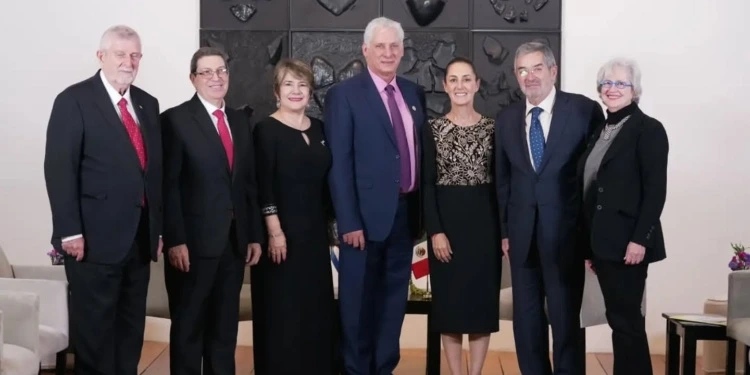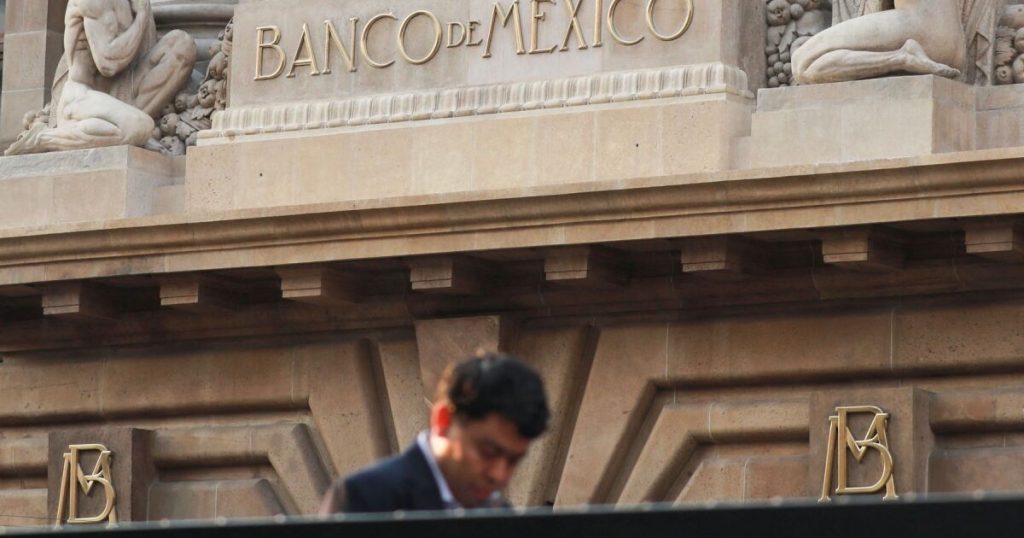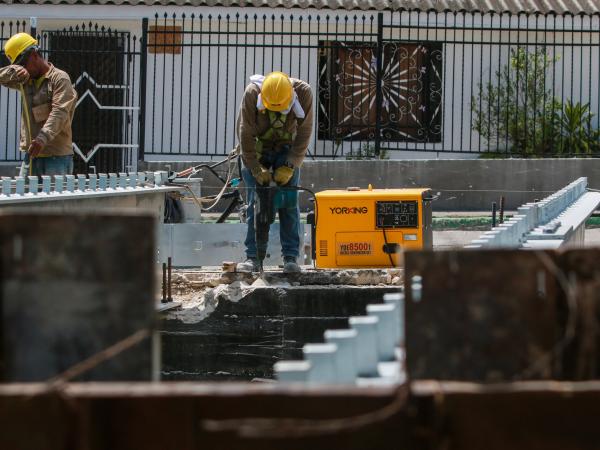MÉRIDA, Mexico.- The president of Mexico, Claudia Sheinbaumaffirmed this Tuesday that the dictatorships of Cuba and Venezuela are “progressive governments”, despite the political and economic crises that these countries are going through, in a context also marked by the lack of freedoms and the violation of human rights.
In his usual morning conference, Sheinbaum This Tuesday she listed those considered by her to be “progressive” in the Latin American region.
“Latin America has Chile, with Boric; The Broad Front recently won in Uruguay, which recovered this progressive front from the Uruguayan government. Bolivia, which has its particular problems, but is a progressive government. Of course Brazil, with Lula; Honduras, with President Xiomara; Guatemala, with President Arévalo and Mexico. Venezuela, which has its problems that we all know; and Cubaobviously,” Sheinbaum said.
These nations, he stated, share points such as their vision of social justice, regional sovereignty and the fight against inequalities.
For Sheinbaum, his country has “many things in common” with those “progressive” governments. He usually supports and defends these, especially the Cuban and Venezuelan regimes, maintaining the position of his predecessor, Andrés Manuel López Obrador.
On November 28, Sheinbaum requested the end of the “economic blockade” that Washington maintains on the regimes of Cuba and Venezuela.
“We ask that the blockades on Cuba and Venezuela be ended because what that does is cause the people to suffer and cause a phenomenon like migration to occur,” declared Sheinbaum at a morning conference.
The president explained that her request was linked to a strategy to contain migration to the United States. He stressed that economic measures mainly affect citizens, who are forced to leave their countries of origin.
The president of the Aztec country has also continued with the line of hiring doctors from the island’s dictatorship.
Last month a group of 199 arrived Cuban doctorsspecialized in 29 disciplines
medicalto the Felipe Ángeles International Airport (AIFA) in Mexico.
These health professionals will join medical care programs in remote communities in 24 states of the country, according to the Cuban Embassy in Mexico.
The Cuban doctors will work alongside Mexican colleagues as part of an agreement between the governments of Mexico and Cuba. This agreement places Caribbean specialists in the units of the IMSS Bienestar program, which operates in areas with difficult access and a shortage of health personnel. “The solidarity and experience of our doctors willing to save lives. “Cuba saves lives,” highlighted the Cuban diplomatic representation in its statement.
Some of these areas where specialists are inserted are dominated by drug trafficking and with high levels of insecurity.
Although the arrival of Cuban doctors has been promoted as an act of solidarity, these international missions have generated controversy due to the working conditions imposed by the Cuban regime. Human rights organizations have denounced that doctors sent abroad work under a model that they describe as “modern slavery.”
The administration of the Aztec country has been promoting the hiring of Cuban doctors for more than four years. The last presidency of Andrés Manuel López Obrador disbursed $5,188 a month to support each of the island’s doctors. They have also limited the scholarships to study abroad that they grant to Mexican university students, leaving Cuba, despite the conditions on the island. , as the main and even only option.















